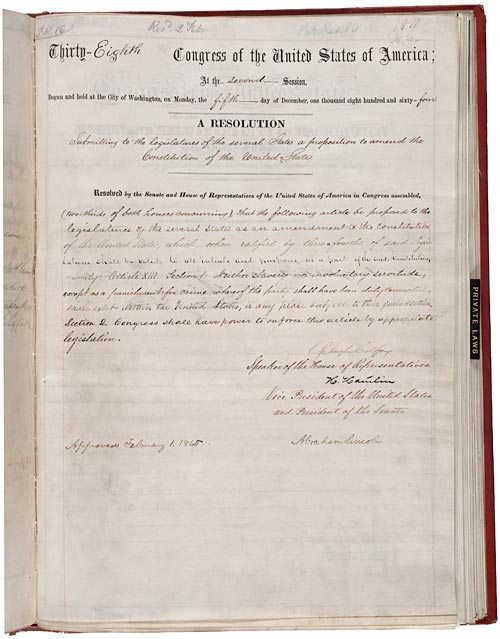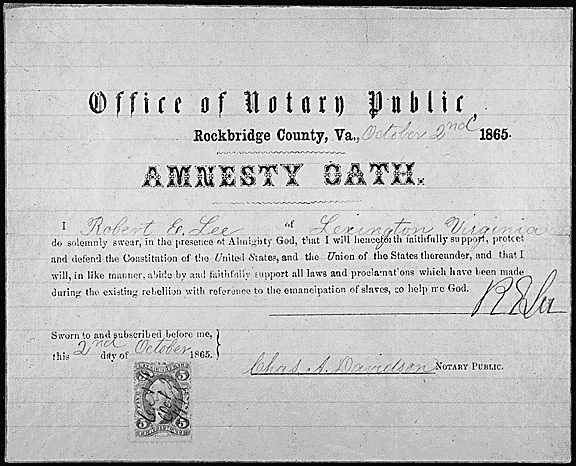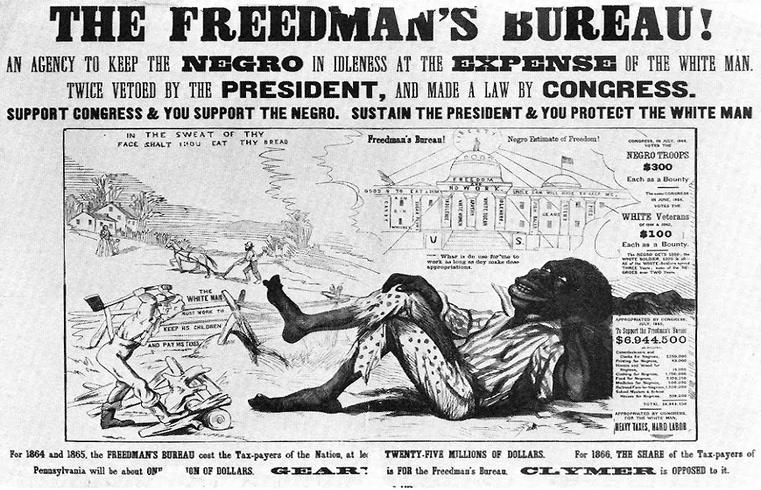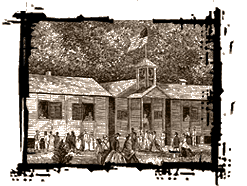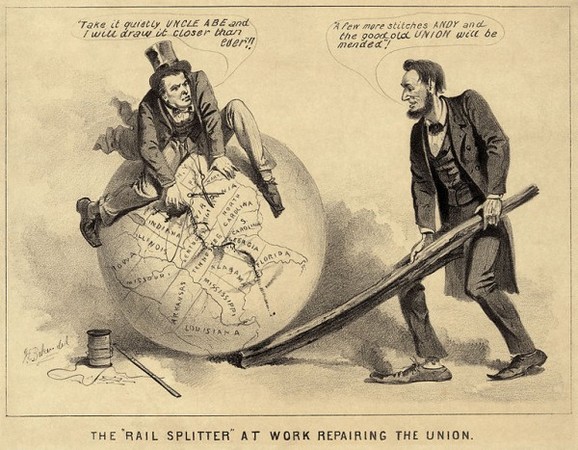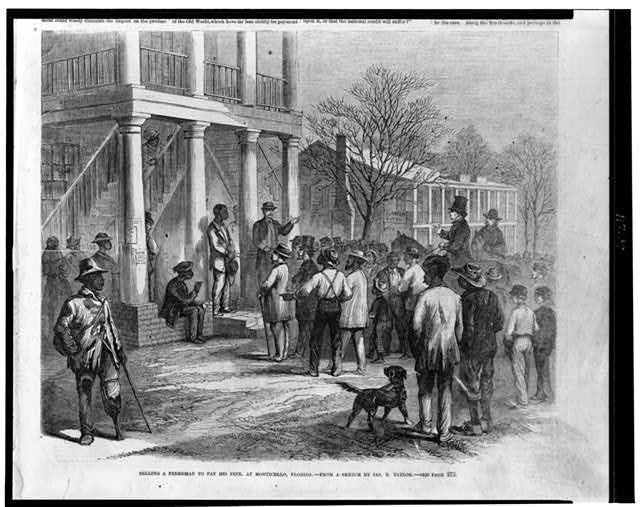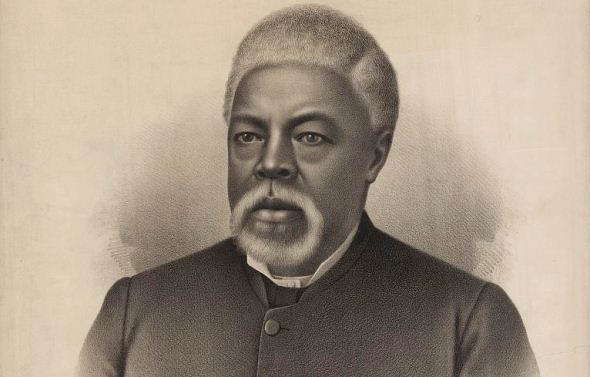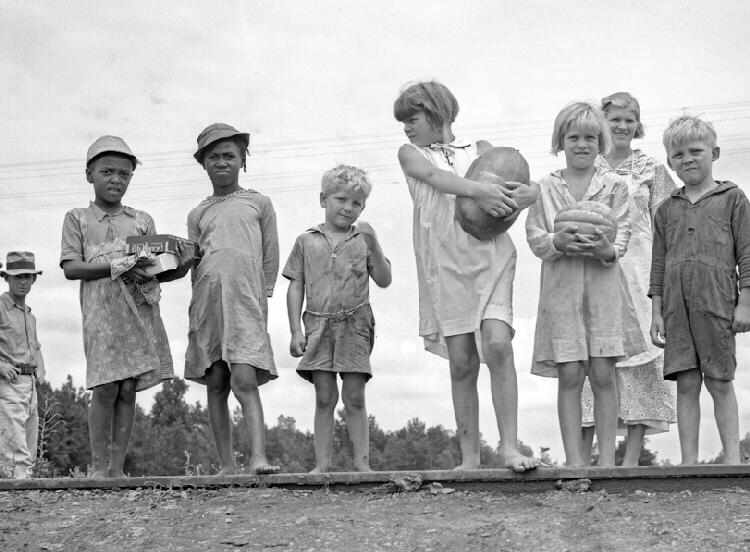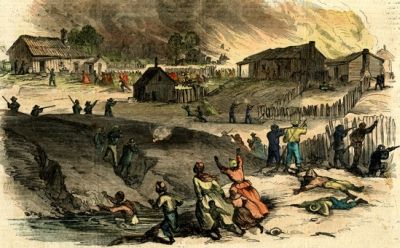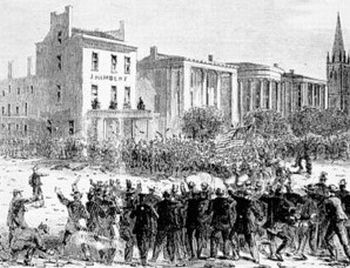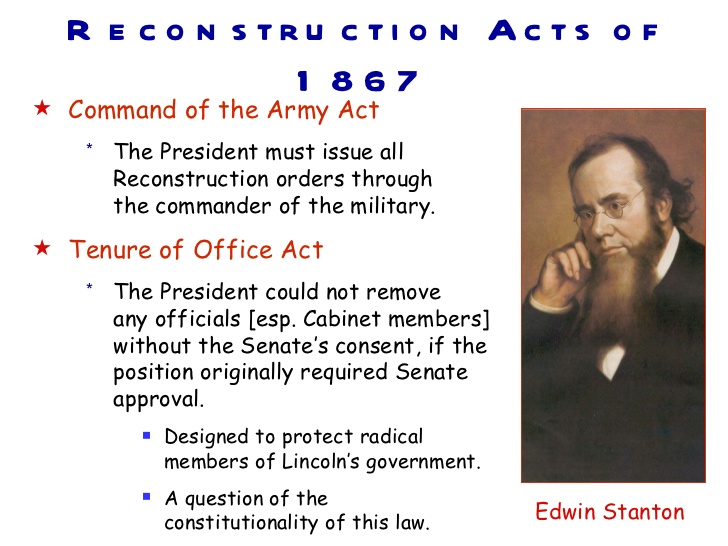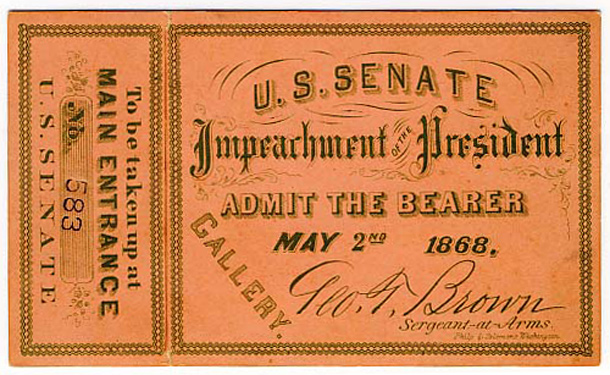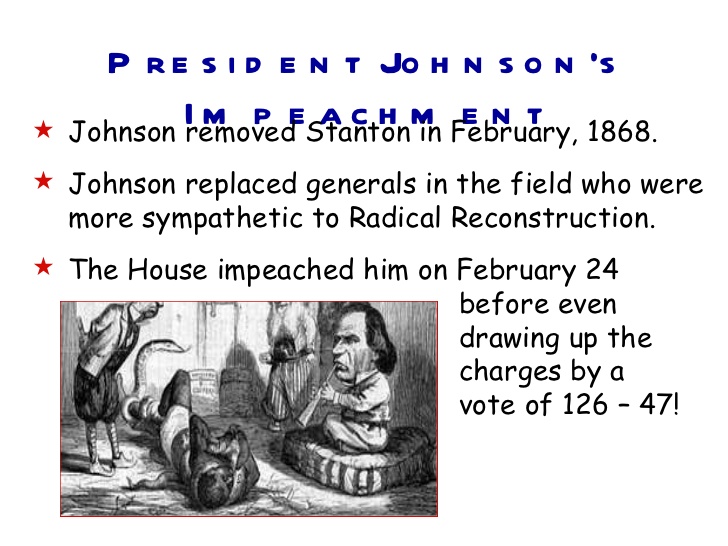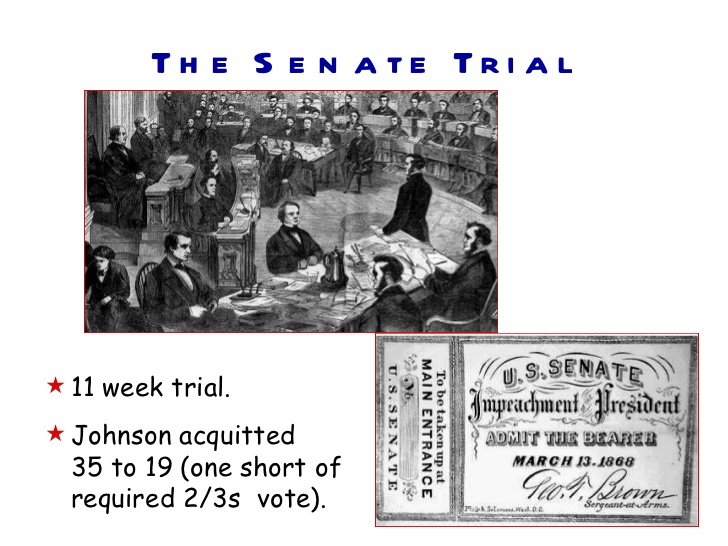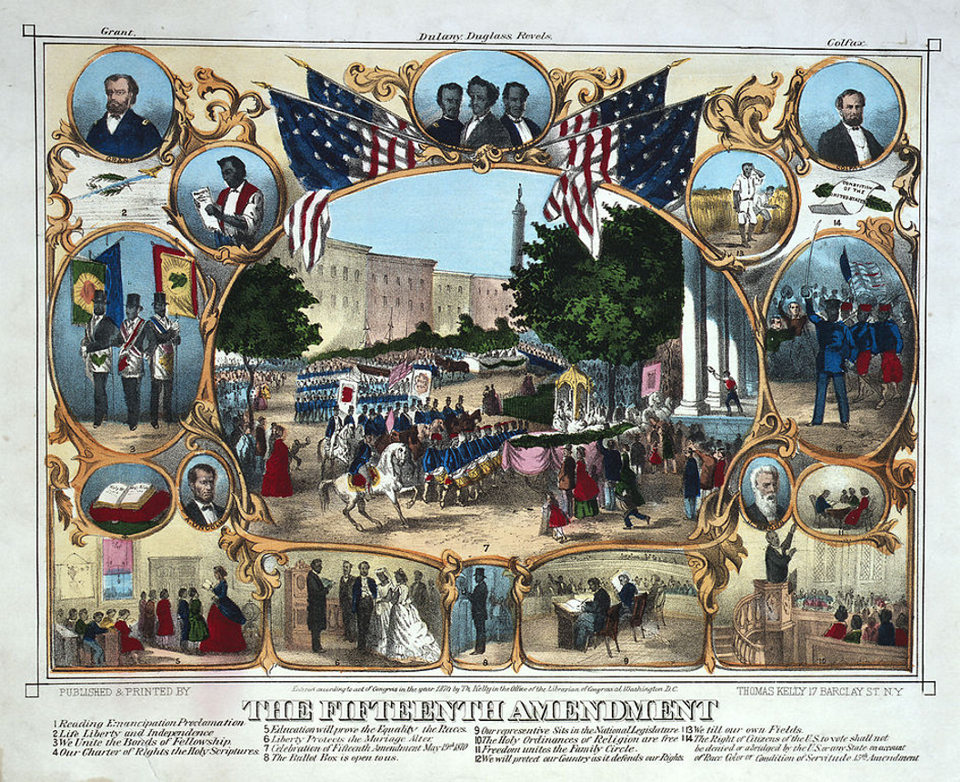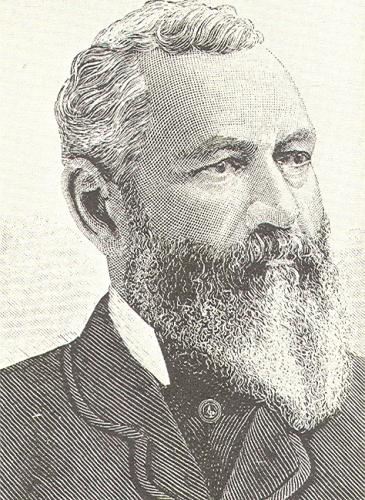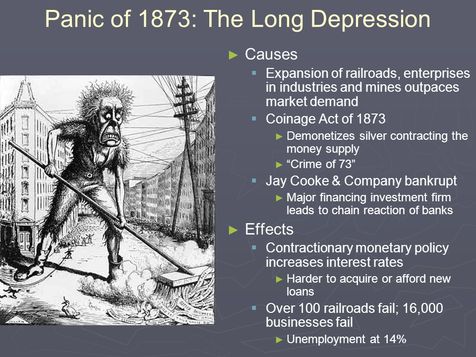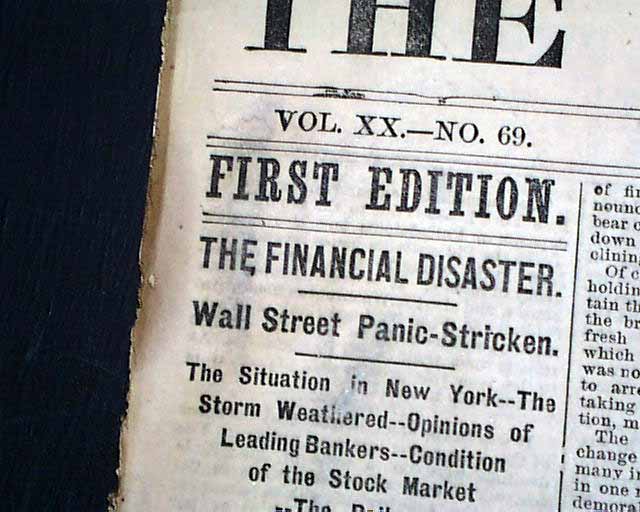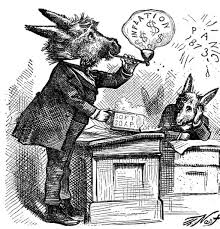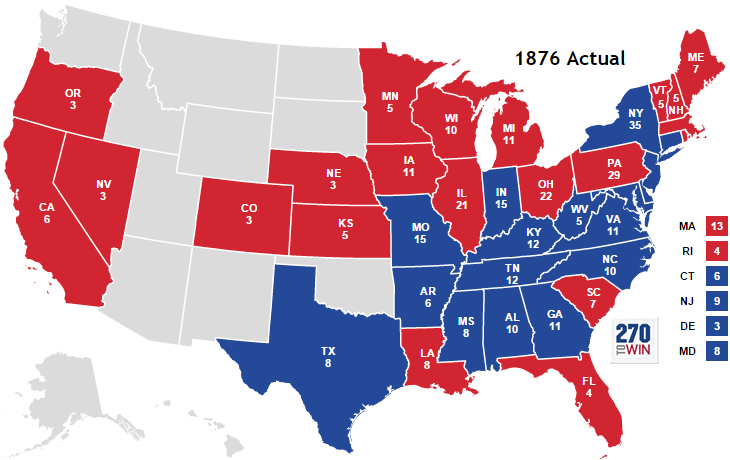The Reconstruction: An Overview
|
|
|
The Death of a Vision
|
|
|
Your browser does not support viewing this document. Click here to download the document.
Andrew Johnson and Racial and Political Tensions
Your browser does not support viewing this document. Click here to download the document.
Your browser does not support viewing this document. Click here to download the document.
Civil Rights Acts, Race Riots and the Ku Klux Klan
Civil Rights Act of 1866 -- Background and outcome
Civil Rights Acts (written by Thomas Legion)
The Civil Rights Act of 1866: This act granted black citizens equal rights to contract, to sue and be sued, to marry, travel, and own property. It made all citizens subject to "like punishment, pains and penalties." Any person guilty of depriving citizens of their stated rights because of race, color, or previous condition of servitude could be fined, imprisoned or both.
The Reconstruction Act of 1867: This act allowed former slaves to participate fully in the political arena. As a result, African Americans sat in constitutional conventions, helped draft state constitutions, and supported new comprehensive programs for state education in the South.
The Enforcement Act of 1870: This act stated that all citizens otherwise qualified to vote in any election should not be denied the vote because of race. States could set up prerequisites for voting, but all persons were to have equal access to the vote.
The Civil Rights Act of 1871: This act set up a system of federal supervision of elections within the states in order to stop illegal voter registration practices.
The Ku Klux Klan Act of 1871: This act was intended to protect black citizens against intimidation by illegal action, such as by the KKK, in cases where states could not, or would not, provide protection.
The Civil Rights Act of 1875: This act entitled all persons the "full and equal enjoyment" of public accommodations, such as hotels, transportation or theaters. It granted blacks the right to sue for personal damages, and allowed any qualified person to serve as a juror. This was the last piece of civil rights legislation passed by the United States Congress until 1957.
The Civil Rights Act of 1866: This act granted black citizens equal rights to contract, to sue and be sued, to marry, travel, and own property. It made all citizens subject to "like punishment, pains and penalties." Any person guilty of depriving citizens of their stated rights because of race, color, or previous condition of servitude could be fined, imprisoned or both.
The Reconstruction Act of 1867: This act allowed former slaves to participate fully in the political arena. As a result, African Americans sat in constitutional conventions, helped draft state constitutions, and supported new comprehensive programs for state education in the South.
The Enforcement Act of 1870: This act stated that all citizens otherwise qualified to vote in any election should not be denied the vote because of race. States could set up prerequisites for voting, but all persons were to have equal access to the vote.
The Civil Rights Act of 1871: This act set up a system of federal supervision of elections within the states in order to stop illegal voter registration practices.
The Ku Klux Klan Act of 1871: This act was intended to protect black citizens against intimidation by illegal action, such as by the KKK, in cases where states could not, or would not, provide protection.
The Civil Rights Act of 1875: This act entitled all persons the "full and equal enjoyment" of public accommodations, such as hotels, transportation or theaters. It granted blacks the right to sue for personal damages, and allowed any qualified person to serve as a juror. This was the last piece of civil rights legislation passed by the United States Congress until 1957.
Congressional Reconstruction
After taking control of Reconstruction, Congress set about implementing policies more in line with their goals. President Johnson, infuriated over having control of Reconstruction taken from him, continued to try and put up barriers to new legislation. Annoyed by his actions, the Radical Republicans consistently overrode his vetoes and ignored his objections.
In March 1866, Congress passed the Civil Rights Bill. This bill granted American citizenship to anyone born in the United States and denied the states the power to restrict their rights to hold property, testify in court, and make contracts for their labor. An attempt to combat the black codes that were restricting African-American's rights, Johnson saw this as an overextension of federal power and vetoed the bill. Anticipating such an action, Congress overrode his veto less than a month later.
Recognizing the need for a more permanent action, one that could not be repealed by a Democratic majority in Congress, the Radical Republicans proposed the Fourteenth Amendment, which granted citizenship to all those born in the United States. With a Republican majority voted into office in the midterm elections of 1866, the party now had sufficient votes with which to override any Presidential veto by Johnson. This newly elected group agreed not to readmit any state that did not ratify the amendment.
As a way to coerce southern states into accepting civil rights legislation, Congress passed the Military Reconstruction Act on March 2, 1867. This act created five military districts each occupied by a Union general and federal troops in order to protect the civil rights of everyone living there. For this military rule to end and to have their legislators readmitted to Congress, the states were required to ratify the Fourteenth Amendment and adopt new state constitutions guaranteeing blacks the right to vote.
Once again, afraid of a possible change to these state's constitutions when a Democratic government took charge, the Radical Republicans proposed theFifteenth Amendment. Ratified in February 1870, the amendment prohibited the states from denying anyone the right to vote "on account of race, color, or previous condition of servitude". Many southern states had quickly ratified this amendment but did not follow it by any means. Lynching, intimidation, poll taxes, and literacy tests were common tactics aimed at keeping African-Americans from voting.
The Civil Rights Act of 1875 was the last congressional measure passed during Reconstruction. It prohibited racial discrimination in jury selection, transportation, restaurants, and "inns, public conveyances on land or water, theaters, and other places of public amusement". It did not guarantee equality in schools, churches, and cemeteries. Unfortunately, this act lacked strong enforcement and dismayed Northerners did not attempt another civil rights act for 90 years. History Retold by Nicholas Smith
In March 1866, Congress passed the Civil Rights Bill. This bill granted American citizenship to anyone born in the United States and denied the states the power to restrict their rights to hold property, testify in court, and make contracts for their labor. An attempt to combat the black codes that were restricting African-American's rights, Johnson saw this as an overextension of federal power and vetoed the bill. Anticipating such an action, Congress overrode his veto less than a month later.
Recognizing the need for a more permanent action, one that could not be repealed by a Democratic majority in Congress, the Radical Republicans proposed the Fourteenth Amendment, which granted citizenship to all those born in the United States. With a Republican majority voted into office in the midterm elections of 1866, the party now had sufficient votes with which to override any Presidential veto by Johnson. This newly elected group agreed not to readmit any state that did not ratify the amendment.
As a way to coerce southern states into accepting civil rights legislation, Congress passed the Military Reconstruction Act on March 2, 1867. This act created five military districts each occupied by a Union general and federal troops in order to protect the civil rights of everyone living there. For this military rule to end and to have their legislators readmitted to Congress, the states were required to ratify the Fourteenth Amendment and adopt new state constitutions guaranteeing blacks the right to vote.
Once again, afraid of a possible change to these state's constitutions when a Democratic government took charge, the Radical Republicans proposed theFifteenth Amendment. Ratified in February 1870, the amendment prohibited the states from denying anyone the right to vote "on account of race, color, or previous condition of servitude". Many southern states had quickly ratified this amendment but did not follow it by any means. Lynching, intimidation, poll taxes, and literacy tests were common tactics aimed at keeping African-Americans from voting.
The Civil Rights Act of 1875 was the last congressional measure passed during Reconstruction. It prohibited racial discrimination in jury selection, transportation, restaurants, and "inns, public conveyances on land or water, theaters, and other places of public amusement". It did not guarantee equality in schools, churches, and cemeteries. Unfortunately, this act lacked strong enforcement and dismayed Northerners did not attempt another civil rights act for 90 years. History Retold by Nicholas Smith
Presidential Issues
Impeachment of Andrew Johnson
15th Amendment
Presidency of Ulysses S. Grant
|
|
|
|

Hiram Revels
Hiram Revels of Mississippi became the first African American senator in 1870. Born in North Carolina in 1827, Revels attended Knox College in Illinois and later served as minister in the African Methodist Episcopal Church in Baltimore, Maryland. He raised two black regiments during the Civil War and fought at the battle of Vicksburg in Mississippi. The Mississippi state legislature sent him to the U.S. Senate during Reconstruction where he became an outspoken opponent of racial segregation. Although Revels served in the Senate for just a year, he broke new ground for African Americans in Congress. (Photo: Library of Congress)
Hiram Revels of Mississippi became the first African American senator in 1870. Born in North Carolina in 1827, Revels attended Knox College in Illinois and later served as minister in the African Methodist Episcopal Church in Baltimore, Maryland. He raised two black regiments during the Civil War and fought at the battle of Vicksburg in Mississippi. The Mississippi state legislature sent him to the U.S. Senate during Reconstruction where he became an outspoken opponent of racial segregation. Although Revels served in the Senate for just a year, he broke new ground for African Americans in Congress. (Photo: Library of Congress)
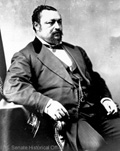
Blanche K. Bruce
Born into slavery in 1841, Blanche K. Bruce spent his childhood years in Virginia where he received his earliest education from the tutor hired to teach his master's son. At the dawn of the Civil War, Bruce escaped slavery and traveled north to begin a distinguished career in education and politics. Elected to the Senate in 1874 by the Mississippi state legislature, he served from 1875 to 1881. In 2002, the Senate commissioned a new portrait of Bruce, now on display in the U.S. Capitol. (Photo: Library of Congress)
Born into slavery in 1841, Blanche K. Bruce spent his childhood years in Virginia where he received his earliest education from the tutor hired to teach his master's son. At the dawn of the Civil War, Bruce escaped slavery and traveled north to begin a distinguished career in education and politics. Elected to the Senate in 1874 by the Mississippi state legislature, he served from 1875 to 1881. In 2002, the Senate commissioned a new portrait of Bruce, now on display in the U.S. Capitol. (Photo: Library of Congress)
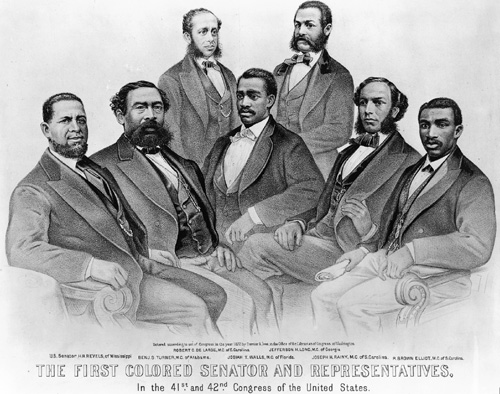
"First Colored Senator and Representatives in the 41st and 42nd Congress of the United States." (Left to right) Senator Hiram Revels of Mississippi, Representatives Benjamin Turner of Alabama, Robert DeLarge of South Carolina, Josiah Walls of Florida, Jefferson Long of Georgia, Joseph Rainey and Robert B. Elliot of South Carolina.
By Currier and Ives, 1872
Courtesy of the Library of Congress
|
"Before ascending to the office of governor, Pinchback had run for both a U.S Senate seat and a seat in the U.S. Congress simultaneously in 1872. He won both contests but was barred from taking his congressional post when his opponent contested the election and was awarded the position. Pinchback was denied his seat in the senate as well as a result of charges of election fraud." - See more at: http://www.blackpast.org/aah/pinchback-pinckney-benton-stewart-1837-1921
|
Your browser does not support viewing this document. Click here to download the document.
Resurgence of the Confederacy
|
|
Financial Woes
Republicans, Democrats and Dirty Deeds
Plessy v.s. Ferguson - Created with Haiku Deck, presentation software that inspires;
